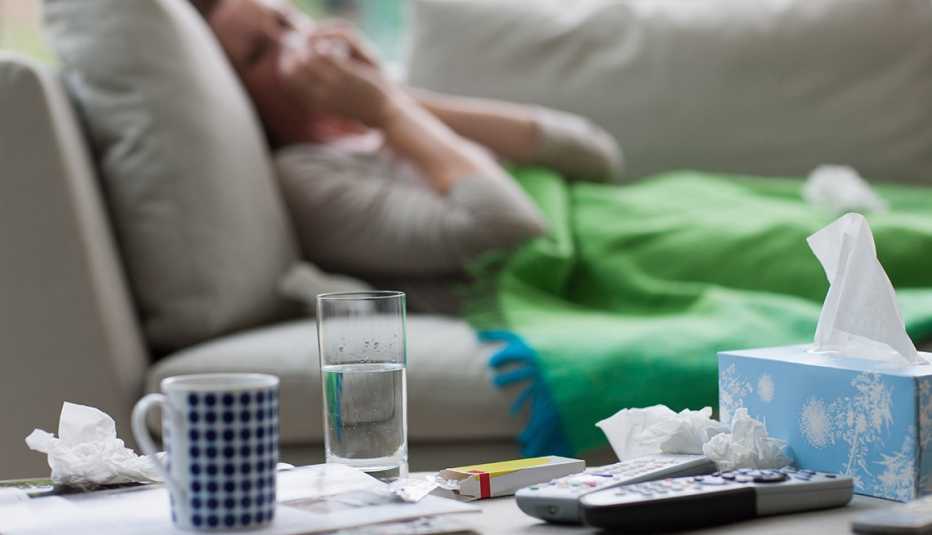AARP Hearing Center


Older adults are hearing a lot right now about respiratory syncytial virus (RSV), because two new vaccines for the infection are available. But a related virus called human metapneumovirus (HMPV) gets much less attention.
One reason: Though researchers are working on HMPV vaccines, none are about to show up in your local drugstore or doctor’s office.
HMPV causes nothing worse than colds in most people, but it merits attention because of the severe complications it sometimes causes in vulnerable people, says Edward Walsh, M.D., a professor of medicine at the University of Rochester. Though less common than RSV, “in terms of severity, metapneumovirus is every bit as bad,” and “can be really devastating” for some people, he says.
HMPV did grab some headlines earlier this year when the Centers for Disease and Control and Prevention (CDC) reported a spike in cases. More people than usual tested positive for the virus in the late winter and early spring months in which it typically circulates, the CDC said.
Here’s what you need to know about the virus.
What is HMPV?
Human metapneumovirus, in the same viral family as RSV, is one of many viruses that can cause upper respiratory infections — better known as colds. But the real concern is that it can get deeper into airways and cause pneumonia, says William Schaffner, M.D., a professor of preventive medicine and infectious disease at Vanderbilt University School of Medicine and past medical director of the National Foundation for Infectious Diseases.
In a study by Walsh and colleagues, 2 percent of adults hospitalized with HMPV died, as did 1.6 percent of those with flu and 2.5 percent of those with RSV.
HMPV was first identified by researchers in 2001 but has circulated in people since at least the 1950s, according to a report published in the journal Viruses. The virus is so common that almost all children are infected by age 5; but because immunity wanes, people can get HMPV infections throughout life, the report said.





































































More on Health
Is It Time to Start Wearing a Mask Again?
Experts share advice as COVID-19 cases start to climb7 Facts You Should Know About the COVID Summer Surge
The latest wave of the virus shows it's not done with us yet
What Older Adults Need to Know About RSV
Cases of the virus are spiking throughout the U.S.